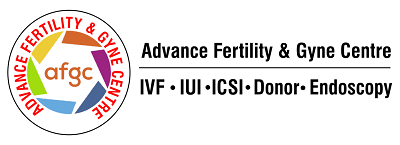Around 1 in 8 women will require in vitro fertilization (IVF)—one of our specialties at Advance Fertility & Gyne Centre—to help them get pregnant, especially when they have tried and failed with other options. We have experience in treating women over 35 years of age as well as patients with multiple associated factors (like uterine, egg, or sperm issues). IVF success rates are currently at 40-50% per attempt and depend on various factors, notably the underlying cause of infertility and age.
One of the most common causes of failed IVF is poor egg quality, but failure can also be attributed to low-quality sperm or embryos. In some cases, a failed IVF cycle can be due to endometrial thickness, uterine infection, premature spike in progesterone levels, or uterine polyps. Regardless of the reason, our fertility experts will address it and provide the best solution to increase the chances of IVF.
Are you considering IVF for the first time? Or perhaps you are looking forward to another cycle? This guide has everything you must know about IVF cycles. It also covers the underlying causes of failed IVF cycles to help you make informed choices about your treatment with us.
Why does IVF fail?
Certain factors that can lead to a failed IVF cycle, including the following:
-
Low ovarian reserve –
This is common in women 35 years of age or older. Diminished ovarian reserve is one of the reasons for poor ovarian stimulation response that leads to high rates of IVF cancellation.
-
Poor sperm and egg quality –
These factors lead to low-quality embryo development, which often results in implantation failure. Poor-quality eggs are common in older women. That said, low-quality sperm is also among the causes of failed IVF cycles, especially when it’s caused by lifestyle problems, environmental factors, or a genetic issue.
-
Thin endometrium –
The endometrium must be adequately thick at around 8mm to prevent the chances of a failed IVF cycle. If it’s too thin, it affects the blood flow and nutrient delivery to an embryo.
-
Polycystic ovaries –
Polycystic ovary syndrome (PCOS) is among the causes of failed IVFcycles because it prevents specialists from timing the procedure. When you have PCOS, you often miss your periods and have them irregularly. Some women also have painful periods and have difficulty becoming pregnant due to implantation defects and problems with the development and growth of their eggs.
-
Other reproductive health issues –
A failed IVF cycle can also be caused by uterine factors, like polyps and fibroids. Likewise, hydrosalpinx and other tubal factors can make the treatment fail.
Note that female reproductive health isn’t the only factor that can influence the success of an IVF cycle. There are external causes of failed IVF cycles, too, such as:
-
Poor conditions in the laboratory –
IVF labs must be properly equipped and conditioned for IVF procedures. Co2 and oxygen concentrations, humidity, light, pH, VOCs, and other factors can impact the proper function and growth of embryos. Any slight alterations in those elements could kill the embryo and lead to a failed IVF cycle.
- Low-quality or inadequate embryo transfer technique
- Sub-par ovarian stimulation protocols
At Advance Fertility & Gyne Centre, we take the time to look into the possible causes of IVF failure and carefully rule them out. However, there is still a chance for implantation to fail by 40-50% the first time around.
As specialists, we understand that implantation is highly complex, with millions of steps involved. Basically, the process involves an embryo developing from a few to a million cells before they divide and implant into the uterus. Then, with microcapillaries, the uterus sends oxygen and blood to the embryo and triggers the final implantation.
This complex process occurs on a microscopic level. While we cannot observe and detect the flow of blood and nutrients and cell division, we can conduct numerous tests to identify the probable causes of IVF failure. This way, we can determine how a failed IVF cycle occurs and identify the best treatment for it.
Embryo selection matters
IVF cycles can fail with poor embryo quality. As such, we carefully choose the right embryos that are healthy enough for transfer. Embryologists are critical in this process as it requires skill and precision. These professionals carefully distinguish between embryos with abnormal and normal chromosomes to pick the best embryos that can improve success rates.
Our embryologists choose embryos based on certain criteria, such as:
-
Cell stage:
This pertains to the embryo’s developmental phase, where each stage has different success probabilities.
-
Embryo grading:
Embryos are assessed based on their development speed, structure, and appearance.
-
Cell division rate:
The rate of cell division indicates the embryo’s viability and health
According to studies, embryos that have reached a minimum six-cell stage by day 3 are unlikely to fail in an IVF cycle. This is why, at our Centre, we choose grade 1, 2, or 2.5 embryos—these have a track record of successful implantation. Moreover, our embryologists assign grades based on the embryo’s overall appearance and quality, and they closely monitor the cell division to ensure it occurs at an appropriate rate.
What can be done about failed IVF cycles?
Poor embryo and egg quality are among the top causes of IVF failure. Current technologies allow specialists to screen for conditions such as aneuploidy, but they cannot detect all genetic disorders. As such, we apply proven stimulation protocols and embryo transfer techniques and ensure optimum embryology lab quality to improve success rates.
Additionally, we address the lifestyle and habits of couples who approach us for a failed IVF cycle. At times, poor egg and sperm quality can be due to being overweight or obese and bad habits like excessive smoking and alcohol abuse. We will also consider certain medications that could impact egg and sperm health, such as medicines for digestive issues, hypertension, and mood disorders.
Overcoming a failed IVF cycle
Advance Fertility & Gyne Centre offers a wide range of treatments to help couples with failed IVF cycles. Our solutions include certain modifications in the IVF cycle to optimize outcomes, especially for couples with multiple failed attempts at conception and unsure about the causes of failed IVF.
Are you dealing with failed IVF cycles? Talk to our experts for the right treatment. Call +91-9871250235 to book an appointment with Advance Fertility & Gyne Centre.


